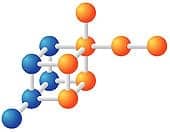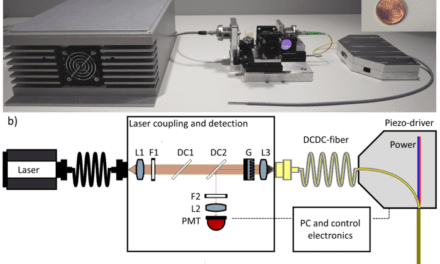Abbott received U.S. Food and Drug Administration (FDA) clearance for its commercially available laboratory traumatic brain injury (TBI) blood test, making it widely available to hospitals in the United States.
The test, which runs on Abbott’s Alinity i laboratory instrument, will provide clinicians with an objective way to quickly assess individuals with mild TBIs, also known as concussions.
The Abbott Alinity i TBI Test
Abbott’s Alinity i TBI lab test offers results in 18 minutes to help clinicians quickly assess concussion and triage patients. For those with negative results, it rules out the need for a CT scan and can eliminate wait time at the hospital. The test measures two biomarkers in the blood that, in elevated concentrations, are tightly correlated to brain injury.
For decades, standard concussion assessment has remained the same, with doctors leveraging the Glasgow Coma Scale, a subjective doctor assessment, and CT scans to detect brain tissue damage or lesions. Having a blood test available could help reduce the number of unnecessary CT scans by up to 40%, potentially reducing costs to the healthcare system and the patient as well as the amount of time they spend in the emergency department.
Millions of people in the U.S. suffer a concussion each year, but more than half of people who suspect they have a concussion never get it checked.
“People sometimes minimize a hit to the head, thinking it’s no big deal. Others wonder if a visit to the doctor or emergency room for a possible concussion will provide them with meaningful answers or care,” says Beth McQuiston, MD, medical director in Abbott’s diagnostics business. “Now that this test will be widely available in labs across the country, medical centers will be able to offer an objective blood test than can aid in concussion assessment. That’s great news for both doctors and people who are trying to find out if they have suffered a traumatic brain injury.”
Identifying TBIs
TBIs are caused by a bump, blow or whiplash to the head and can pose risk of both short- and long-term effects. People who experience a TBI may experience impairment of memory, movement, sensation (e.g., vision and hearing), and emotional functioning (e.g., personality changes, psychological symptoms). Effects of TBI can last anywhere from a few days post-injury or may be permanent. People who sustain a TBI are more likely to have another one—similarly to how a sprained ankle or torn ligament is more susceptible to future injury.
These effects are worsened by misdiagnosis or lack of diagnosis, so providing tools that can objectively aid in the evaluation of a TBI or concussion is essential to giving people the answers and treatment they need.
This FDA clearance complements Abbott’s i-STAT TBI Plasma test, a rapid blood test for concussion, which is already cleared by the FDA. With the Alinity i clearance, a TBI blood test can now be run on Abbott’s high throughput Alinity i laboratory instrument.
The Alinity i test can be used when a patient shows up to the hospital with a suspected mTBI within 12 hours of injury. A blood sample is drawn from the arm and sent to the lab for preparation and the test is run on the Alinity i instrument. Results are available in as little as 18 minutes and shared with the treating healthcare provider for evaluation.
Broadening the availability of the TBI blood test for use on lab-based instruments is an important step in Abbott’s strategy to ensure its tests are available in all settings where people seek care for head injuries, the company says.





